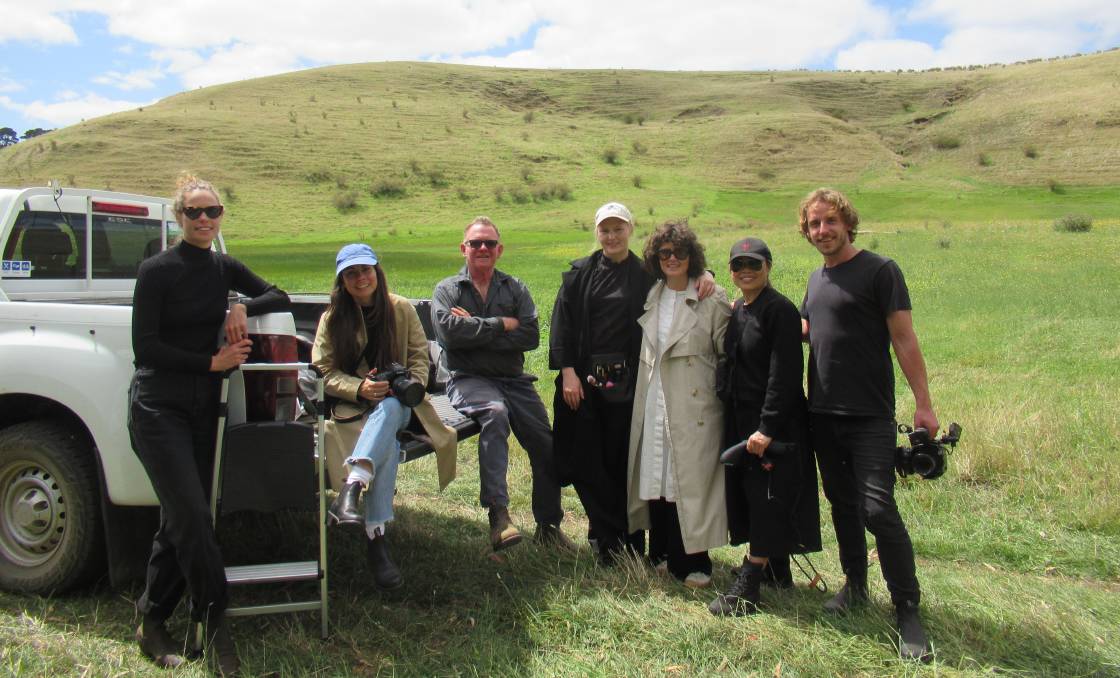
A high-end fashion label has used a south-west Victorian farm as the location of a new global advertising campaign aimed at spruiking the benefits of traceable wool.
Melbourne brand Wolfgang Scout used the Warrnambool property for a series of campaign shoots which will go live on social media platforms next month.
The company offers premium hand-knitted garments which retail for between $800 and $1400.
Wolfgang Scout founder Carla Woidt said the campaign was passionate about sharing the story behind their sweaters which are made from Responsible Wool Standards (RWS), used to recognise best practices within the wool industry.
“It’s more than just photographs of garments, it’s about telling a story of where our product is from,” Ms Woidt said.
The campaign was filmed at Kia Ora Merinos, owned by Brendan and Susan Finnigan, who were recognised by Premier Daniel Andrews in 2019 for leading the way with sustainable and ethical wool production.
The Finnigans run a commercial mob of about 10,000 Merinos and about half a dozen bales of their superfine fleece are bought by Wolfgang Scout annually.
“Our wool is non-mulsed and follows a number of specifications within the RWS which relates to sustainable landcare, animal welfare practices and social responsibilities,” Mrs Finnigan said.
“We’ve been very impressed with Wolfgang Scout and believe they have a lot of experience in what they do so we would love to see their business flourish.”
The Finnigans’ wool averages about 17 micron and is marketed through a genesis group run by wool brokers Fox & Lillie which promotes RWS wool to both domestic and international brands and mills.
The group also works with the growers on certifying their properties as part of the RWS.
Ms Woidt said since establishing the company in 2019, it had developed a strong domestic following in Australia as well as overseas markets including the US, UK, Europe and Hong Kong.
The company said it worked closely with its stakeholders along the supply chain from the moment of purchasing the raw wool, through the scouring and spinning process, as well as during the knitting stage.
“We have not only used the landscape of Kia Ora but also all of our photography was captured using interesting aspects of the working farm such as motorbikes and I hope that peaks people’s interest in wanting to explore more of where their products come from,” she said.
